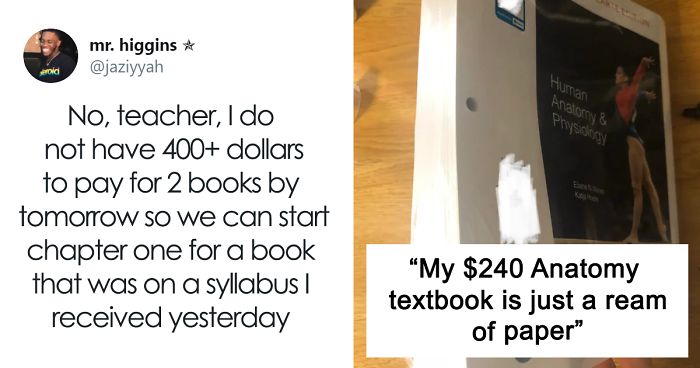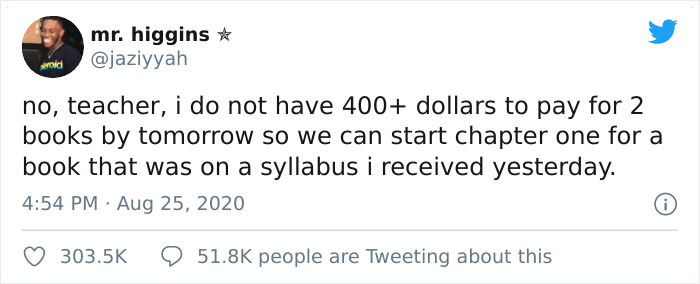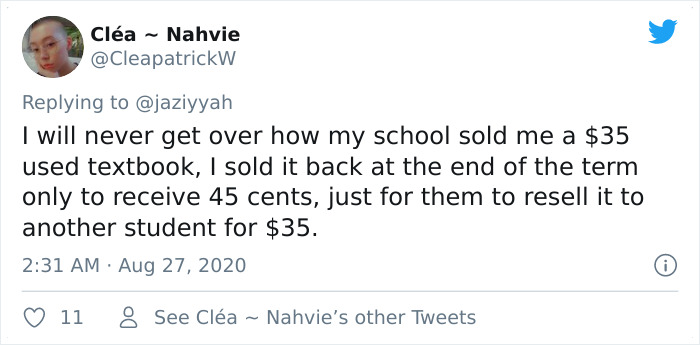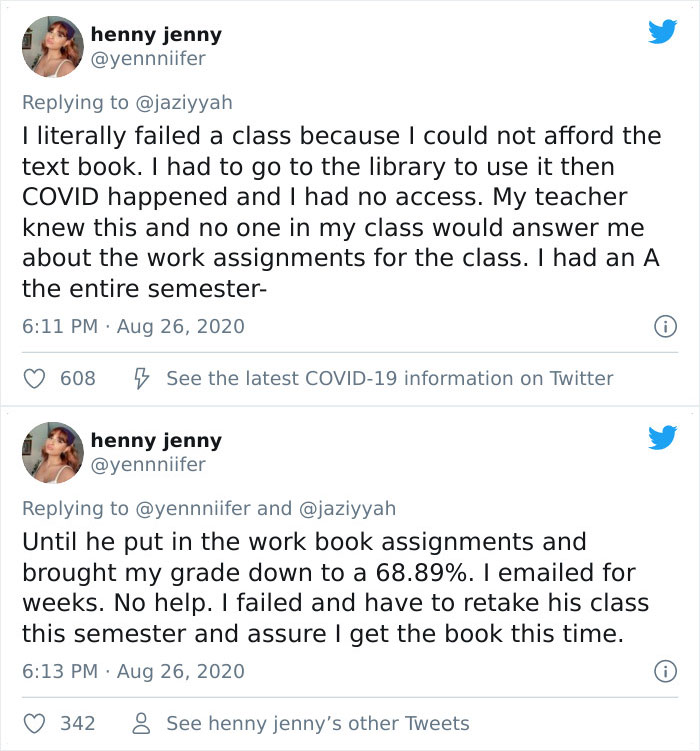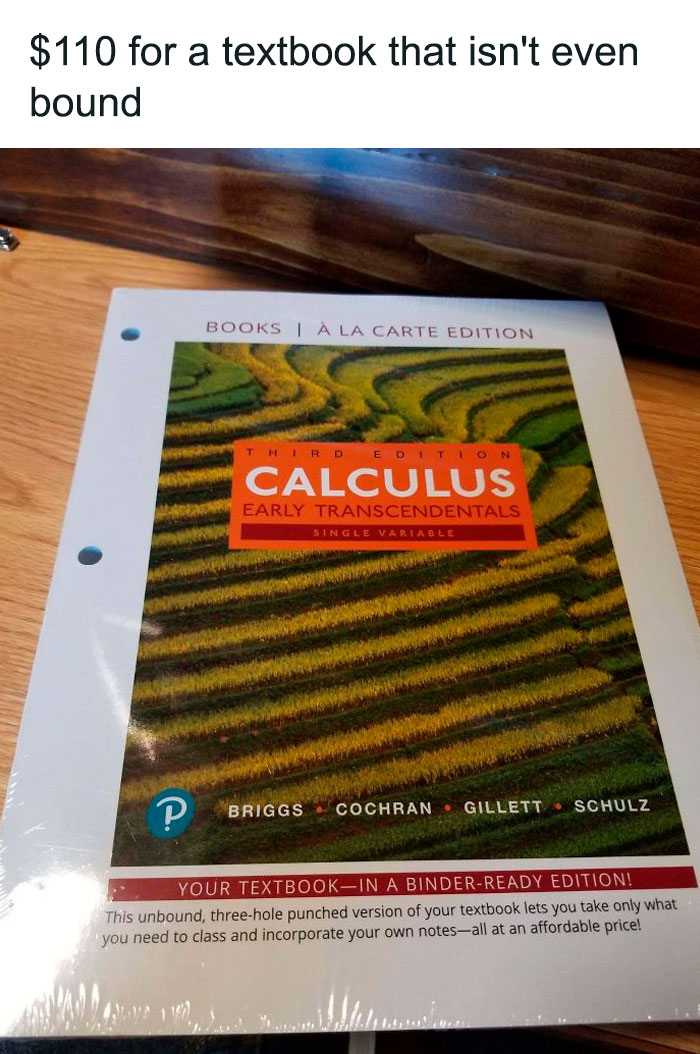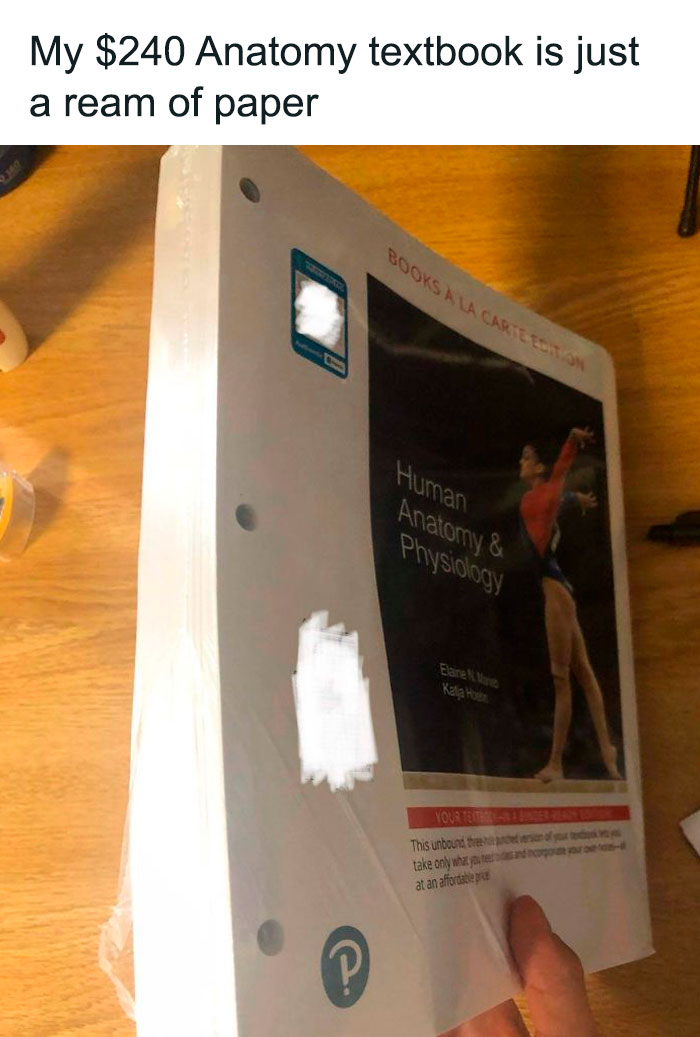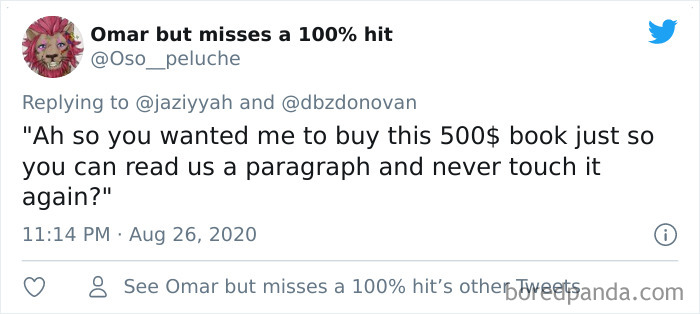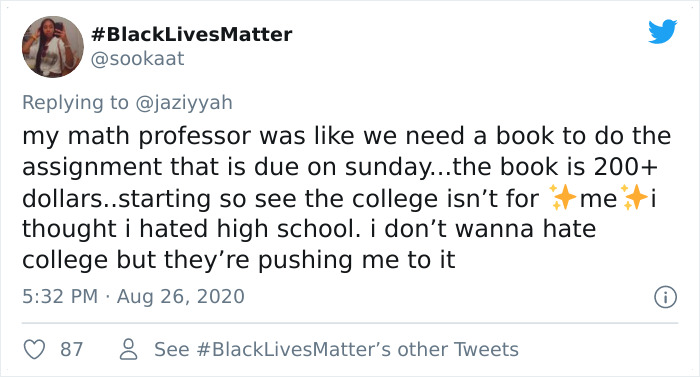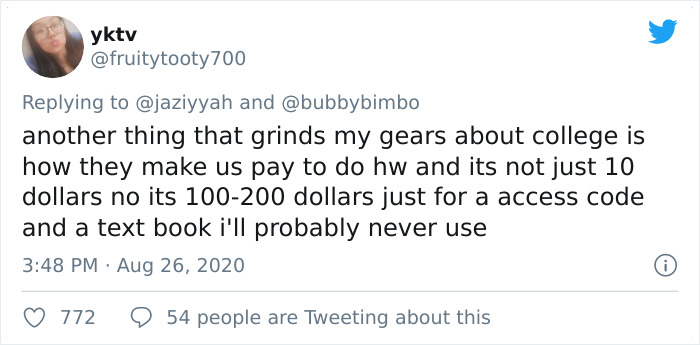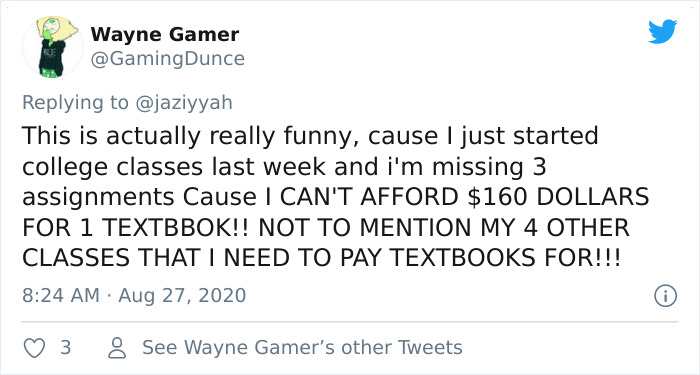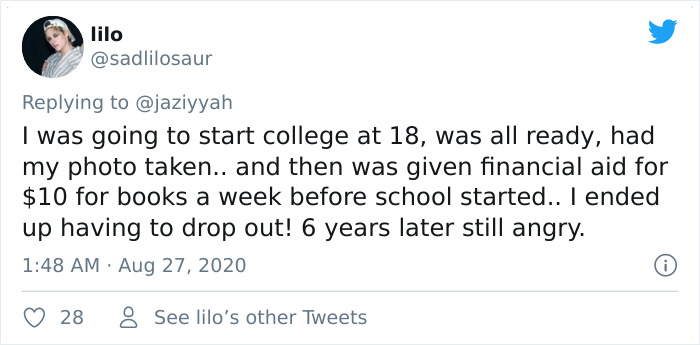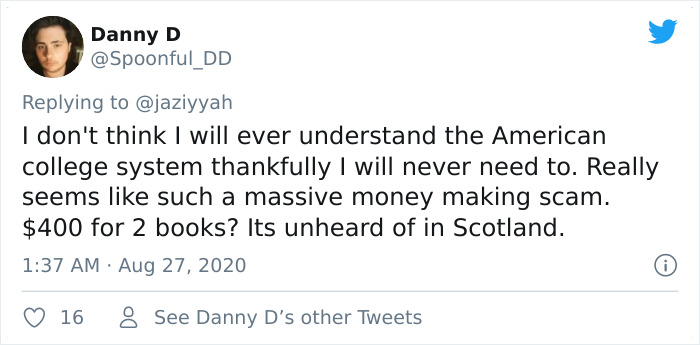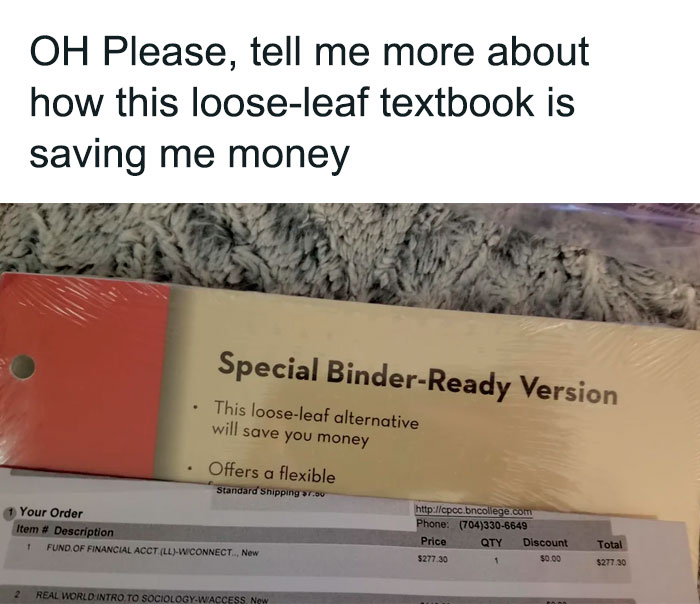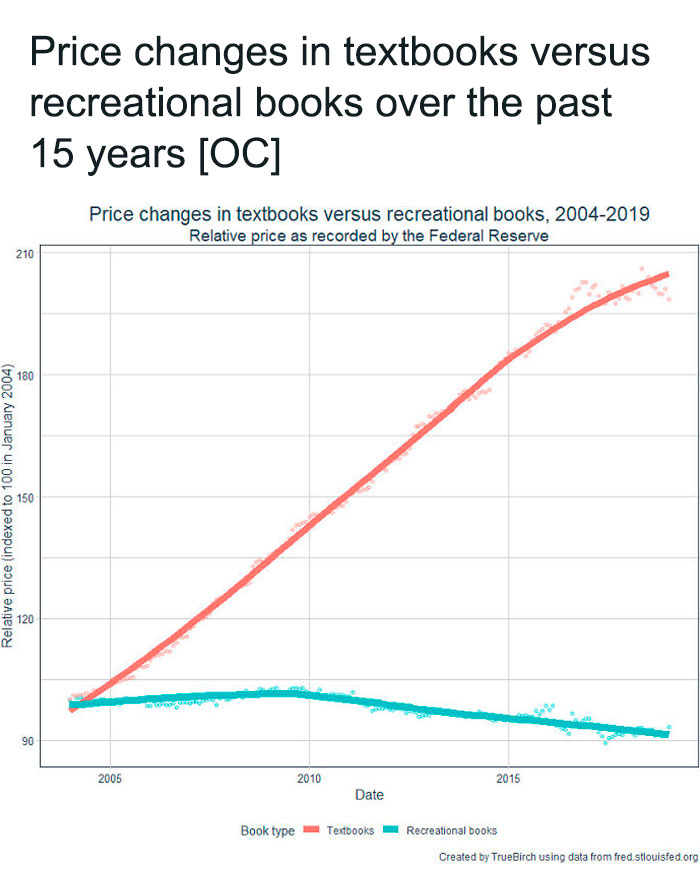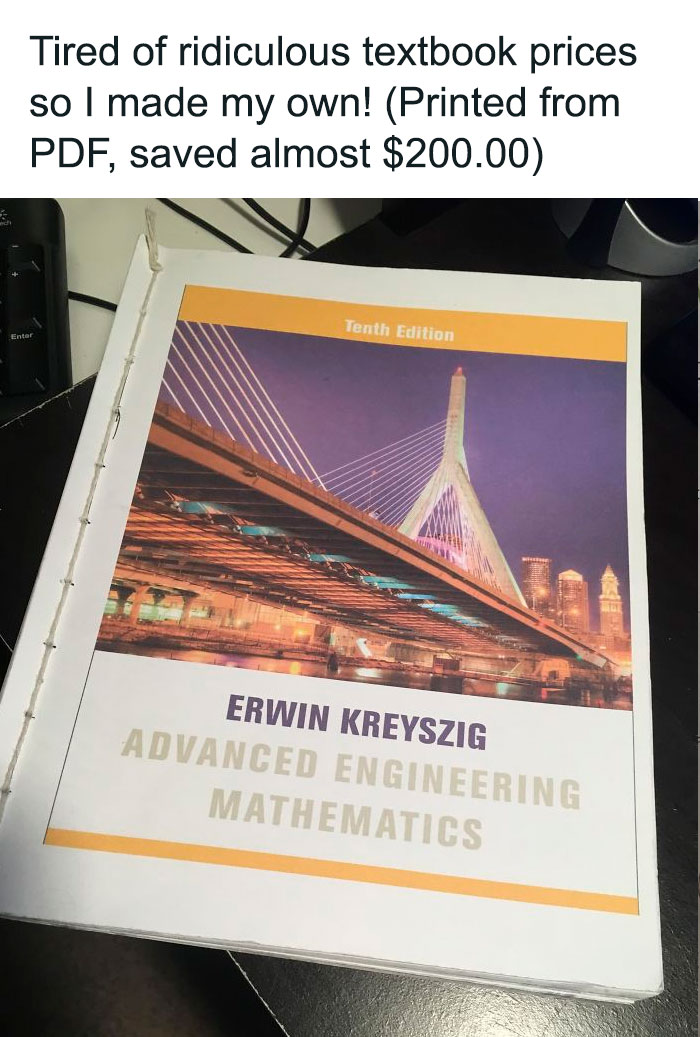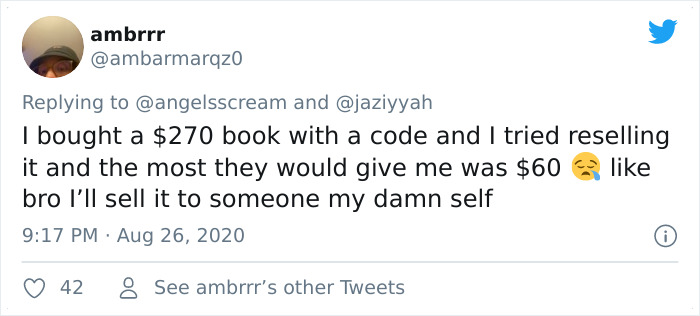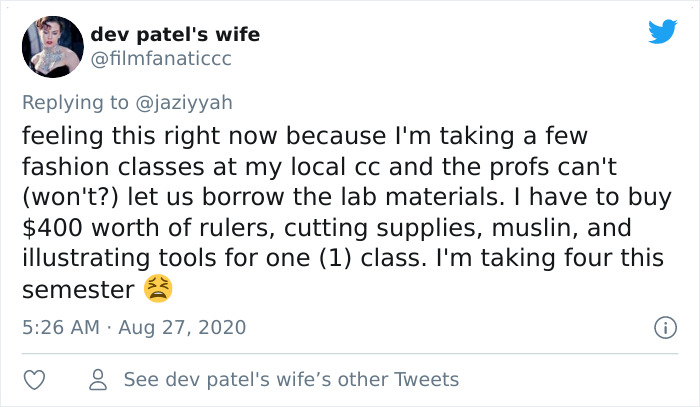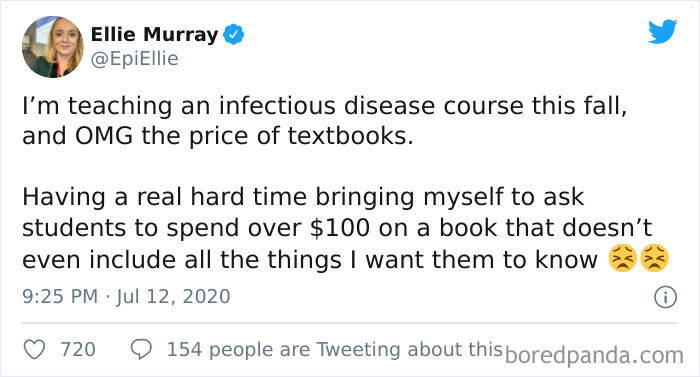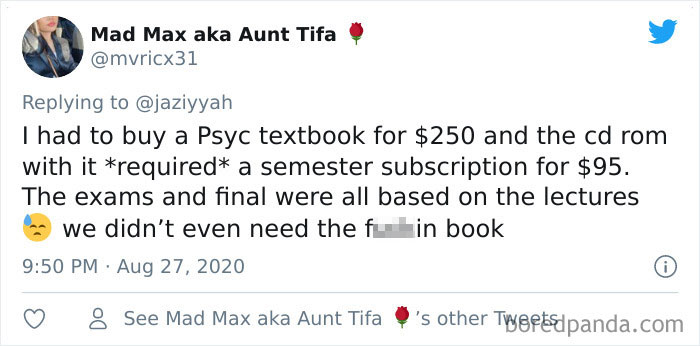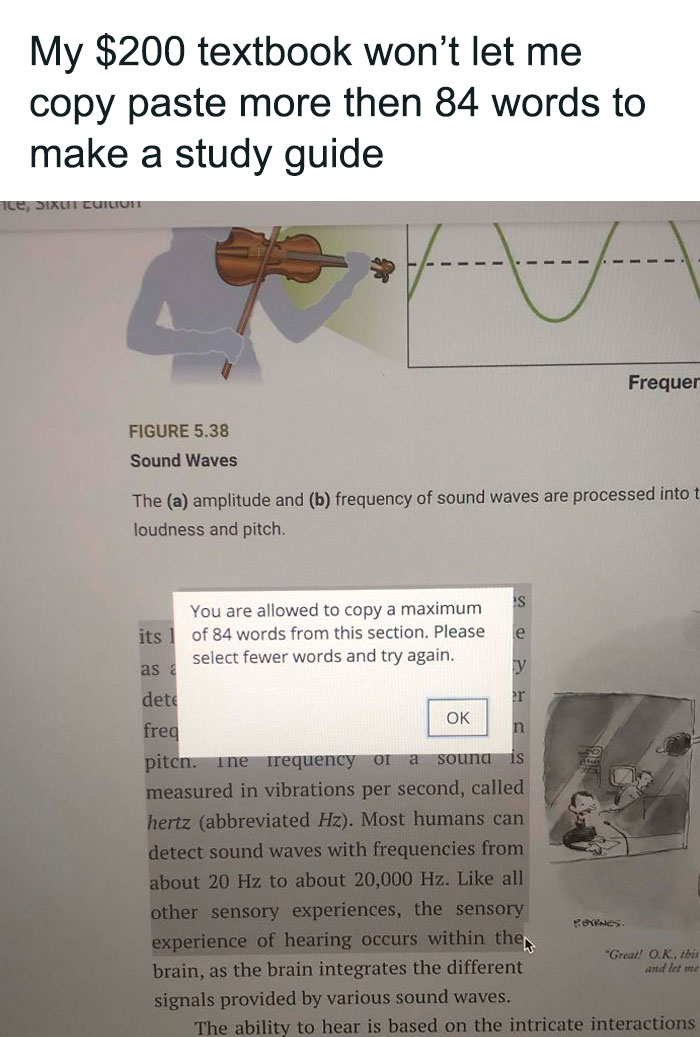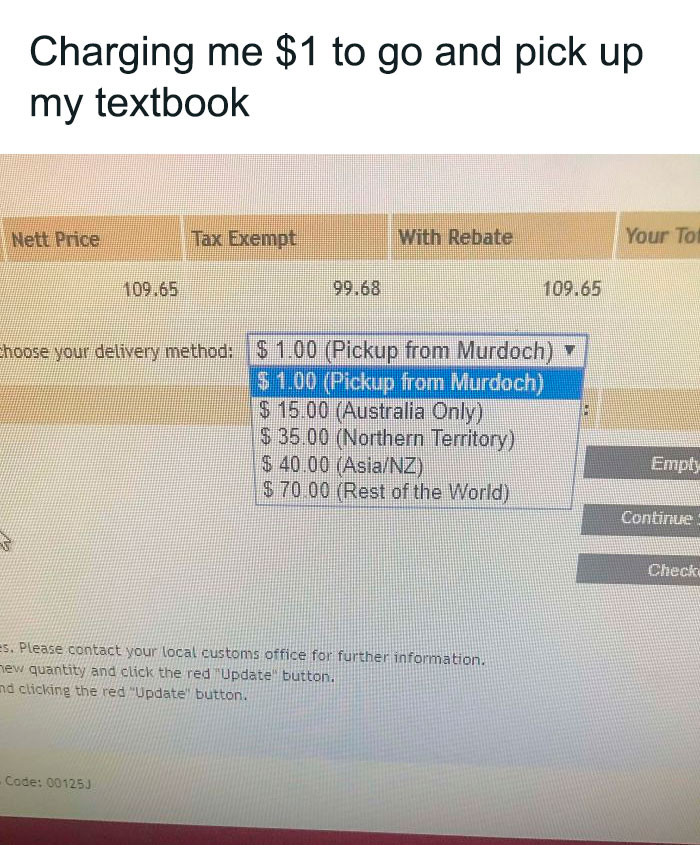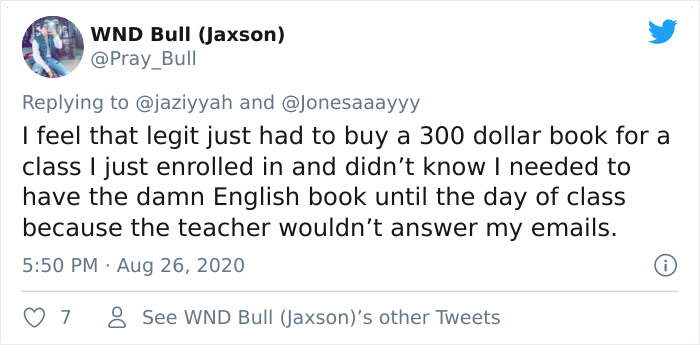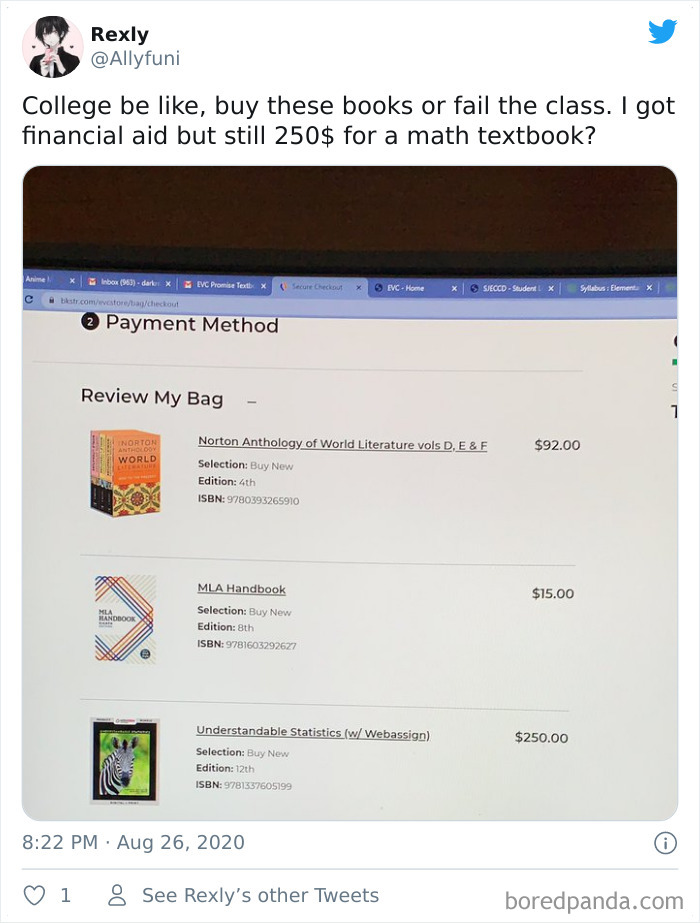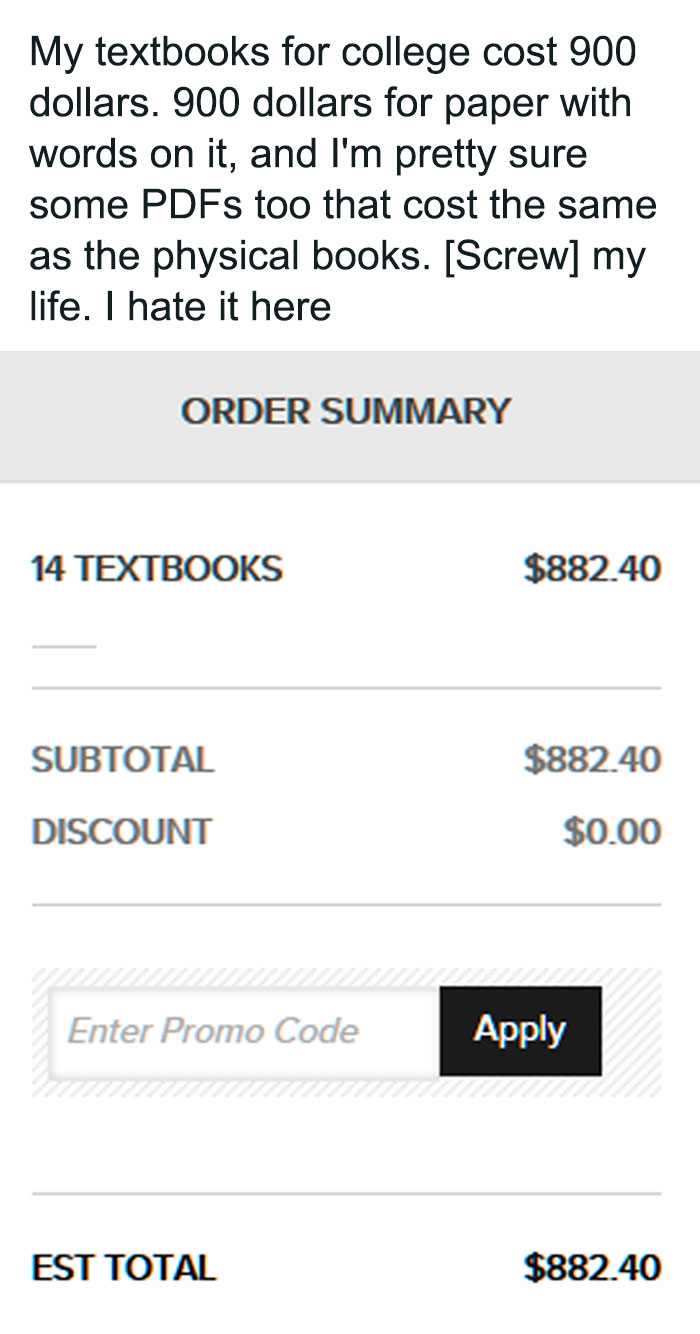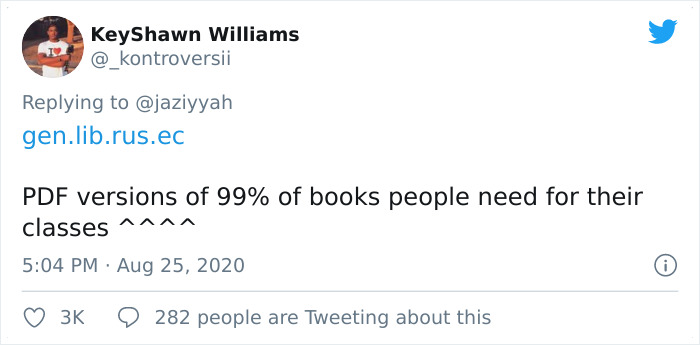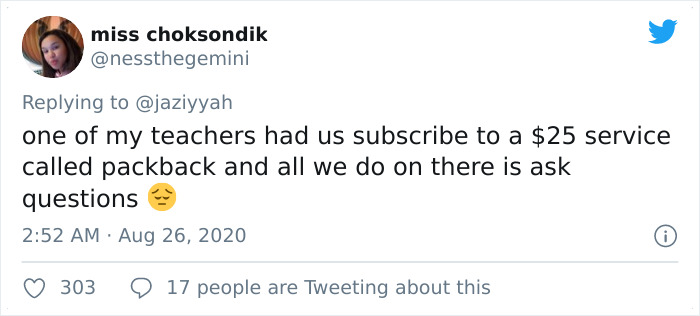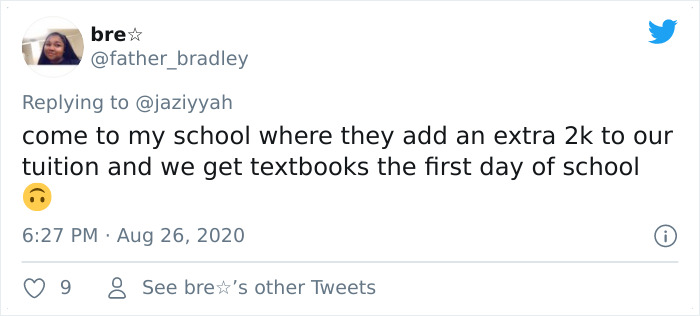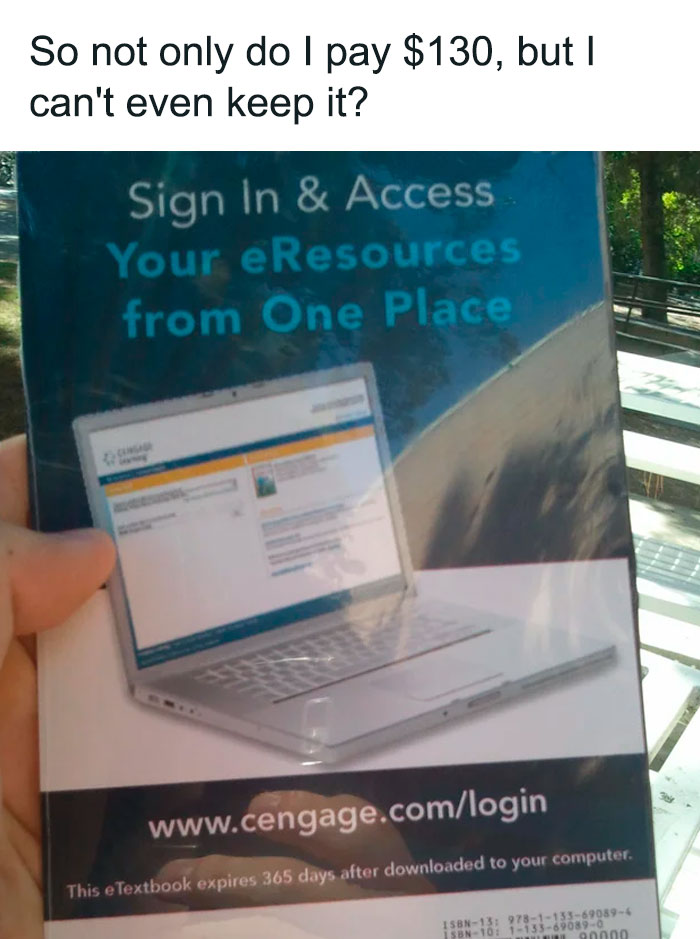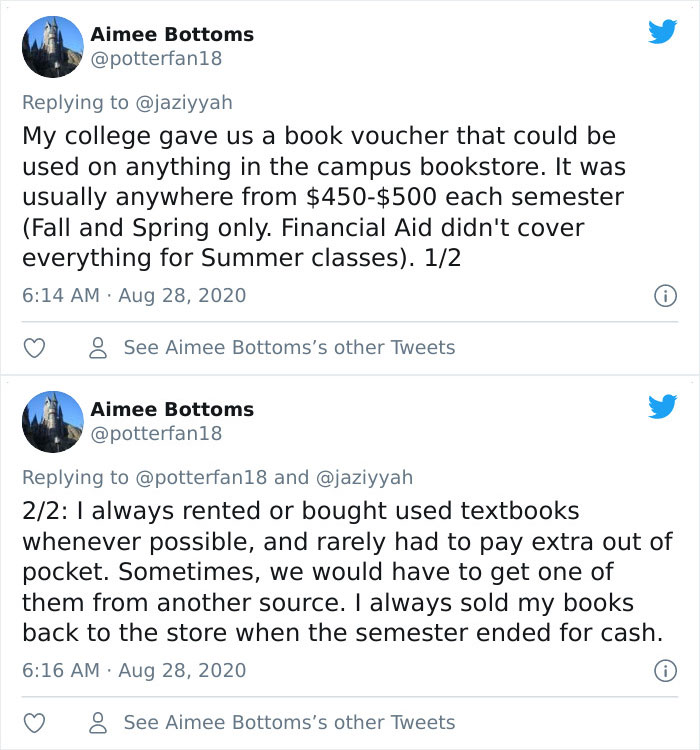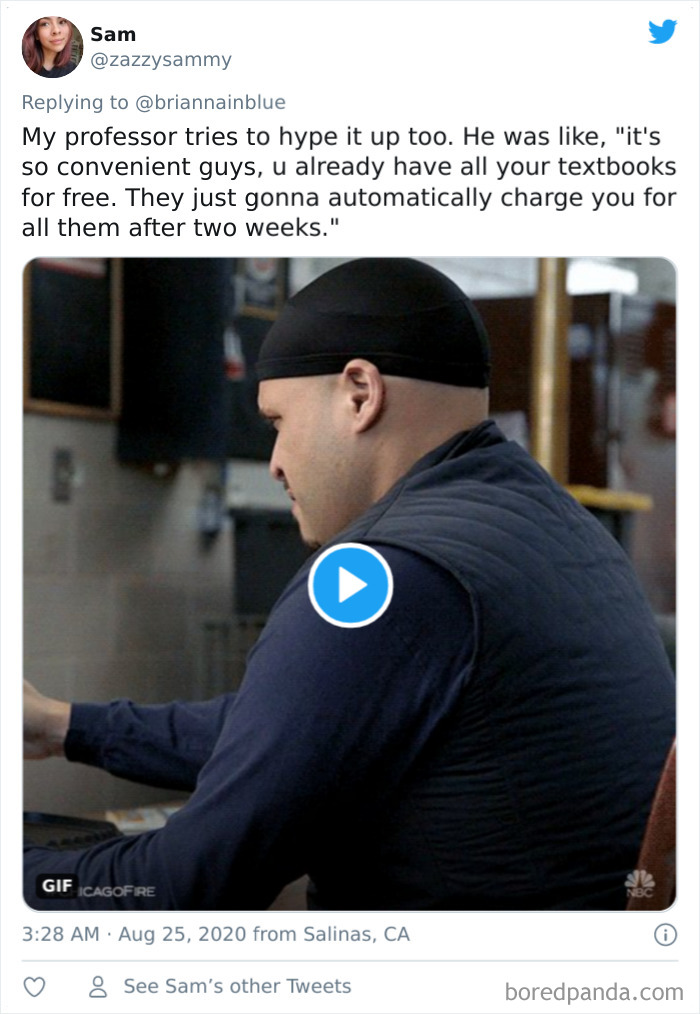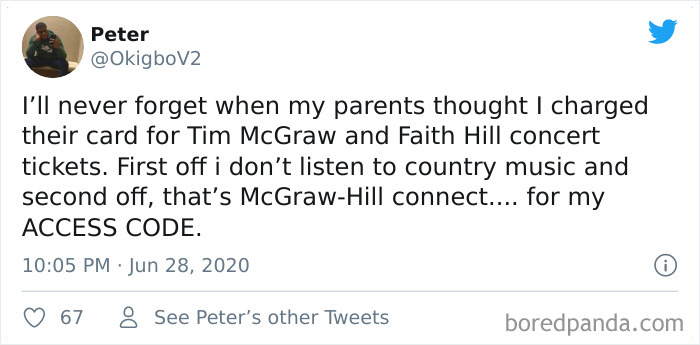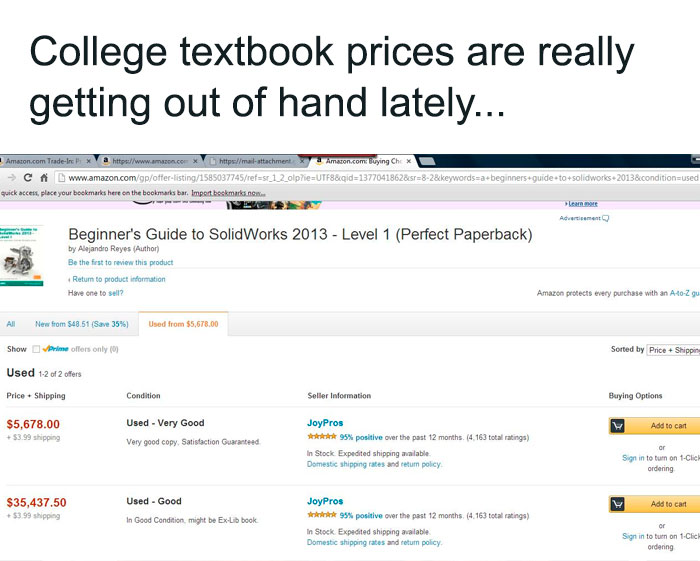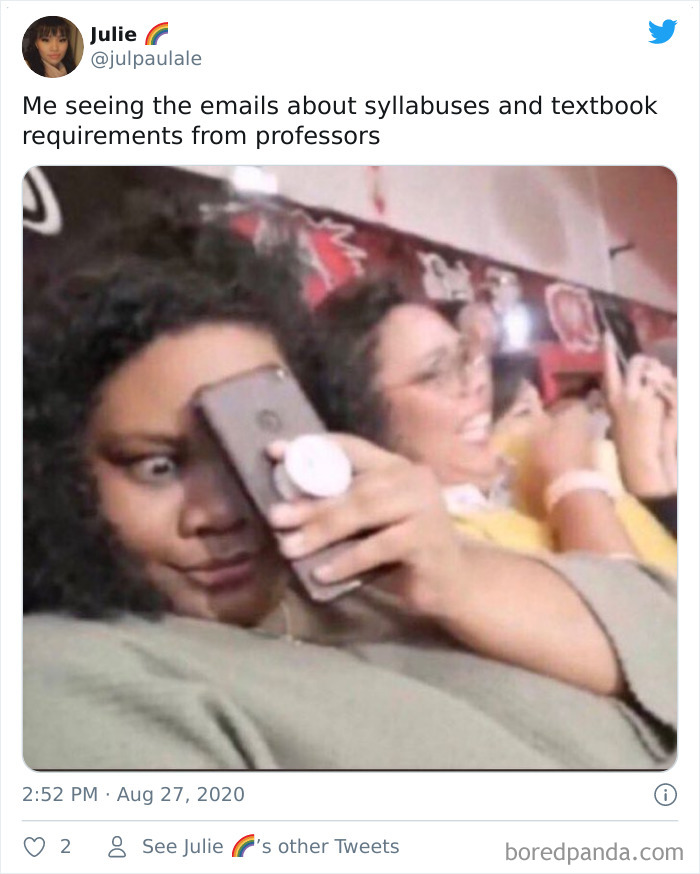Some students are already back at school while others are busy enjoying the last few days of their summer holidays. However, book lovers and people who are serious about education are about to face an annual dilemma: what do you do about the insane price of textbooks?
Knowledge might be power and learning is loads of fun, but when books cost more than your rent or the amount of money you spend on food each week, there’s a big problem, as people on Twitter are finding out after social media user Mr. Higgins started a viral thread on the topic. And the problem gets bigger when you realize that you’ll most likely use a particular book just for one class and that’s it.
To get you in the right mood for the new school year, have a read through people's complaints about the ridiculous prices of textbooks on Twitter. Upvote your fave tweets and let us know how you solved the textbook issue in school, dear Pandas! To learn about the alternatives to buying new expensive textbooks, Bored Panda reached out to Richard Davies from AbeBooks.com. Scroll down for his insights.
This post may include affiliate links.
It's so sad... in Africa, we copy these books. Can't be paying so much for a book that has been making profit for 20 years, just 2 page revisions. The whole class once bought one book and made 50 copies
Davies from AbeBooks.com told us that the best way to save money when shopping for textbooks is to buy used copies instead of books fresh off the presses. "They will be substantially cheaper," he pointed out that this way students can save a lot of money.
"Textbooks are regularly reissued by publishers in new editions. Ask your tutor if you need the latest edition," Davies gave some further advice.
"If you are studying something like calculus, a subject that doesn’t change, then an older edition may work for you. You can find used and older editions by using marketplaces such as AbeBooks.com. Search by ISBN to find an exact edition, but search by title and author to find all editions," he said.
See, an anatomy book is something you’d think a student would keep, especially if it’s going to be useful in their career. So you’d think they’d make it more substantial—-or at least sell it with a good, sturdy binder included!
Even if you can’t get the textbooks that you need, your teachers and professors still expect you to do your work on time. That means that some people are busy fighting over the last remaining library copy of that book you totally need for Econ 101 while others are photocopying hundreds of pages and learning the lost art of bookbinding by hand.
Meanwhile, others turn to the internet for help. Internet piracy isn’t something to be celebrated, but some people end up downloading illegal PDFs so they don’t have to choose between books and food. Fortunately, there are legitimate e-book services that solve the problem with free trials.
There’s also the ability to rent physical or digital copies, as well as the previously mentioned possibility to purchase secondhand copies that might not look brand new but cost far less than new copies.
This is a summary of college only using two pictures; expensive as hell.
That’s my Sociology “book”. In fact what it is is a piece of paper with codes written on it to allow me to access an electronic version of a book. I was told by my professor that I could not buy any other paperback version, or use another code, so I was left with no option other than buying a piece of paper for over $200. Best part about all this is my professor wrote the books; there’s something hilariously sadistic about that. So I pretty much doled out $200 for a current edition of an online textbook that is no different than an older, paperback edition of the same book for $5; yeah, I checked. My mistake for listening to my professor.
This is why we download
Vox writes that the cost of textbooks between 2006 and 2016 has increased by a head-spinning 88 percent, according to the Bureau of Labor Statistics.
Meanwhile, the College Board suggests that students put aside around 1,200 dollars for books and other supplies for college. That’s a huge sum for anyone, but especially for somebody with low income.
That means that students end up plain ignoring some required reading and, as a result, their grades suffer. Sure, textbook publishers need to make a living and its vital to support the academics who put in their blood, sweat, and tears into turning their research into college texts. However, with college fees being as high as they are, studying can seem much more expensive than at first glance.
And can’t sell back, or even use it once the semester’s over. Yeah, I hated the access code “workbooks”.
Before my financial aid money came in, I went on,I even and got the ballpark price for my textbooks. Once I had my money, I budgeted for everything, with a little cushion in case of price increases. Luckily, my school paid out financial aid the week before classes started, instead of up to two weeks after like some schools do.
It IS a massive money-making scam. However, in most industries, you can kiss your chances of promotion goodbye if you don’t have a college degree—-even if you can do the job better in your sleep than the frat rat who got it instead of you can do it wide awake and with help. They just don’t “grandfather” experienced but uncredentialed employees into management positions anymore.
Smart, as long as you made sure the pdf is the version the instructor is using.
Then don’t. Scan the sample copy they sent you, plus any other materials your students will need to read, and upload them to MyClasses, Blackboard, or whatever online learning management site your school uses. It’s not an unheard of practice for “additional” reading materials an instructor prefers to use but which may be out of date.
The last 5 years of my English lit teaching, I went entirely to public domain books on Kindle. Cost of books for a basic Intro course went from $85 to $12. Cost for my English grad students went from $600 to $45. Got heat from bookstore & admin. Told them to mind their own business. I was tenured. Now retired Emeritus.
Except when they pull c**p like 'answer the questions on page 45' and the electronic version doesn't match up.
That’s still more expensive than the suggested $1200 budgeting for textbooks.
Be sure to forward them a copy of your receipt so they can match the charge in future. That way they’ll know you’re not wasting money earmarked for school on non-school stuff.
I don't charge my students anything. I put all the books online, tell them they can print those themselves, and ask they keep their mouths shut about it in return. They just need to pay $30 for the online exam training which is out of my control.
This is great if on one checks for some kind of copyright violation or no one rats you out. Course packets are a cheaper alternative as are choosing cheaper text books. Its also possible for the prof to put text books on hold in the library ( which students can then xerox)
Load More Replies...Ou yeah, "Look, capitalism. Capitalism everywhere... " :) I am not mention, that universities and schools in Slovakia are public and for free :)
Yes, ours too. Capitalism seems to want to limit access to learning, that would seem to be the opposite of a good idea..
Load More Replies...This seems like an American problem. Yes my uni textbooks were expensive here in South Africa too, but we used those books in class every day and if you really couldn't afford it you could borrow a copy from the library (provided you were fast enough since there were limited library supplies).
At least a couple of these photos are from Australia
Load More Replies...I don't charge my students anything. I put all the books online, tell them they can print those themselves, and ask they keep their mouths shut about it in return. They just need to pay $30 for the online exam training which is out of my control.
This is great if on one checks for some kind of copyright violation or no one rats you out. Course packets are a cheaper alternative as are choosing cheaper text books. Its also possible for the prof to put text books on hold in the library ( which students can then xerox)
Load More Replies...Ou yeah, "Look, capitalism. Capitalism everywhere... " :) I am not mention, that universities and schools in Slovakia are public and for free :)
Yes, ours too. Capitalism seems to want to limit access to learning, that would seem to be the opposite of a good idea..
Load More Replies...This seems like an American problem. Yes my uni textbooks were expensive here in South Africa too, but we used those books in class every day and if you really couldn't afford it you could borrow a copy from the library (provided you were fast enough since there were limited library supplies).
At least a couple of these photos are from Australia
Load More Replies...
 Dark Mode
Dark Mode 

 No fees, cancel anytime
No fees, cancel anytime 






